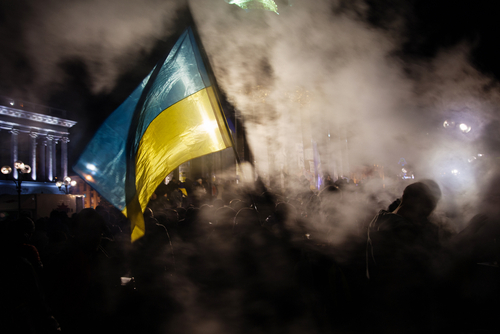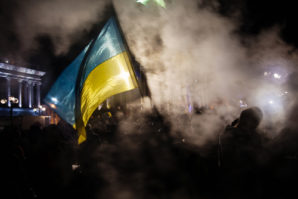
Since March 2014 Ukrainian crisis as well as rampant ambitions of the Russian President, which actually lies at heart of these events, have been compelling attention of the whole European Union. Then consolidated European authorities responded rapidly and rigorously, sticking to their insistent declarations concerning their readiness to fight back the aggressor, selflessly protect peace and welfare in Europe and, finally, provide as much help to Ukraine as it may require.
Nevertheless, now we can no more notice former steadiness demonstrated by Europe in fight for peace and justice as it was a year ago. Furthermore, it doesn’t seem to constitute a solid and monolithic union, regrouping like-minded fellows, always ready to stand for common values and principles being at the heart of European Union. They are listed in Article 2 of European Union Treaty and are lying at the root of its security and subsistence.
These values are as follows:
– respect for human dignity, freedom, democracy and equalty;
– rule of law;
– respect for human rights, including the rights of persons belonging to minorities.
By lapse of time European Union has turned from an ordinary economic union into a mighty alliance of like-minded people, with its own system of principles and legal relations making citizens’ lives more comfortable and predictable. While the situtation was peaceful and stable the EU has achieved high standards of life, but with a significant sacrifice in security and defence domains. Because of decades of calm and measured life Europeans started to think that they were way out of danger. Thus, Ukrainian crisis has indicated that it was rather unguarded position and that politicians’ statements about high-toned principles and values have matched exceptionally the peace time, since being potentially targeted by Russian aggression certain leaders of Western states have revealed their true selfish and coward identity. Faithless and inexplicable actions of the Russian Federation in the Crimea and Donbass have shocked and horrified European officials. Even today European citizens perceive Ukrainian conflict as the rumble of post-Soviet republics (in meantime major Russian propaganda channels, such as RT and LifeNews facilitate it qutie actively). That’s why they are absolutely sure that they aren’t endangered, and European leaders are still unable to explain people they are responsible for, why they should put up with certain economical cutbacks and take all the efforts in order to eliminate this global scale threat source. Contemporary Putin’s regime must not exist as it is, and one of the ways to neutralize or alter it is to impose efficient and targeted sancions immediately.
Even though nowadays it’s impossible to sever economic relations with Russia completely, EU leaders shouldn’t forget that they are dealing not with a partner but with an adversary, whose actions can’t be logically assessed. EU officials have a stereotyped image of a Head of State as of a well-minded and consistent person. However, the fact that Putin behaves as a subtle criminal causes cognitive dissonance within European authorities. Western democracies leaders should plainly understand that any Russian national enterprise mustn’t end up with on the European market as it is bound to hamper civilized economical approach as well as lead to a dramatic growth of corruption, particularly in South-West part of the Union which countries are especially exposed to Russian influence and constitute the object of its thorough supervision.
In such conditions it is unaffordable for EU to call up separatists to cease hostility and set upon negotiation process with official Ukrainian authorities which will be very humiliating for the latter. In the meantime Kremlin’s propaganda has tightly stuffed heads of Russian citizens with the myth about all-mighty government’s programs that, some time later are sure to deal with any problem. That is why European leaders have to keep their ears open to the rhetorics of the Baltic states and that of Poland, considering they have already experienced that “the Russian Tsar”, in pursue of his imperial ambitions, always goes down and dirty!
Therefore, European leaders should harness their political willpower and stay resilient to the fictitious economical benefits offered by lifting the sanctions but to remain loyal to fundamental values of the European Union in order to achieve tangible long-term strategic goals as otherwise, the price payed by the the Old Country may appear to be too high meanwhile its consequences will become irreversible…

